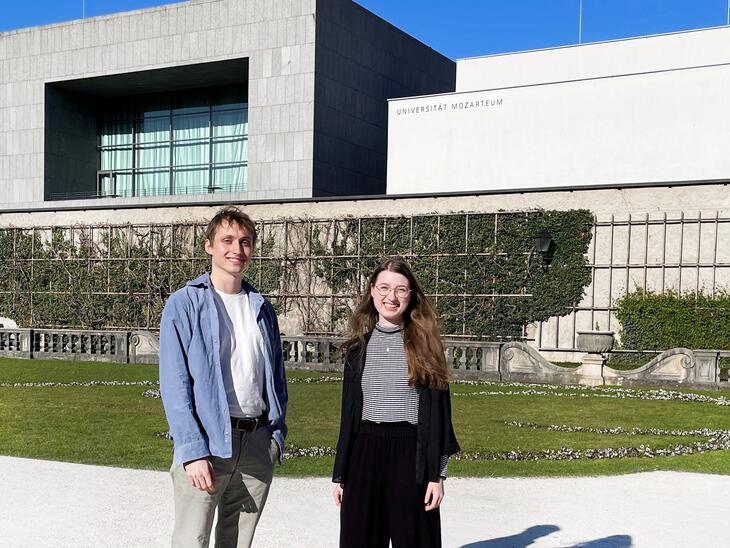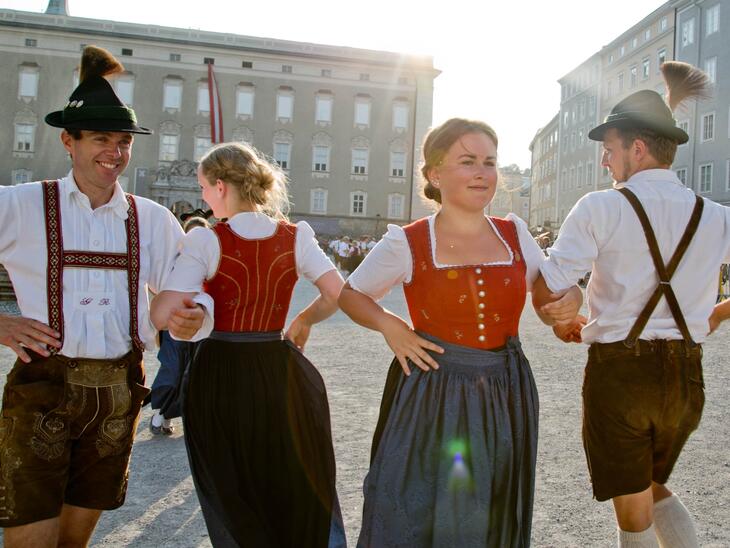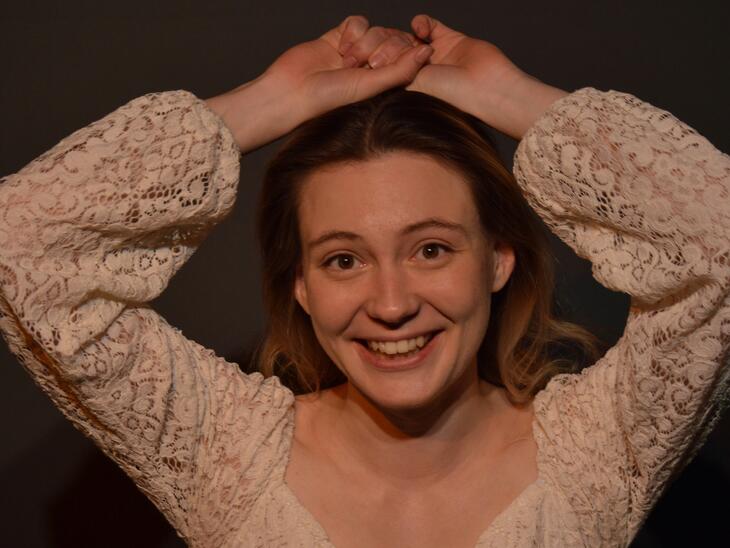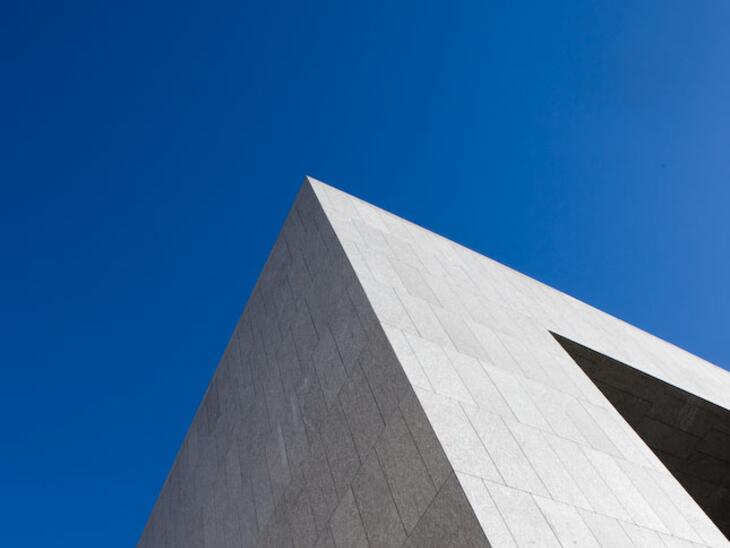Negotiating room, parliament and playground for tomorrow
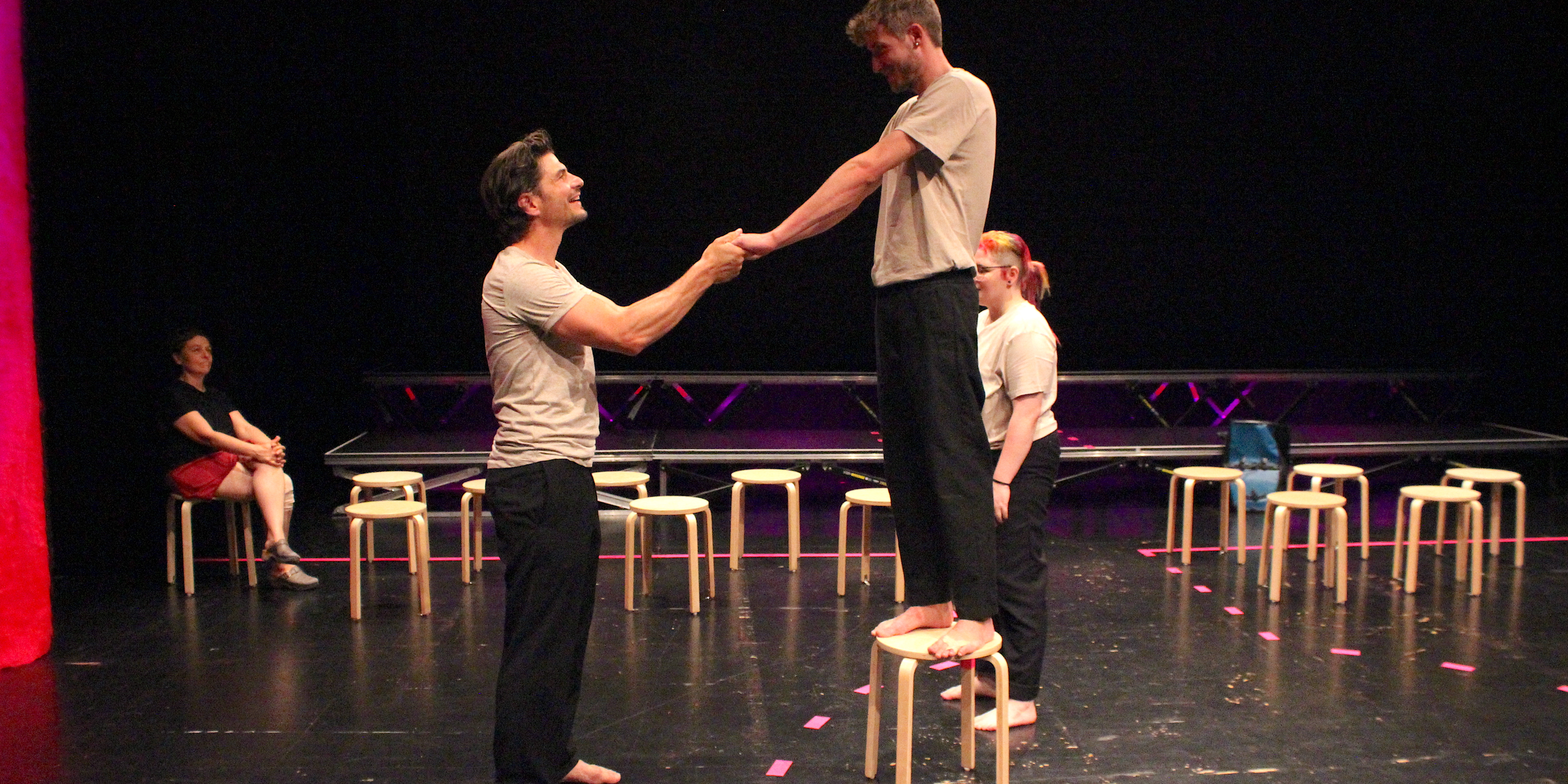
The Applied Theatre Master's programme at Mozarteum University celebrates its 5th birthday. A look back and ahead with Prof. Ulrike Hatzer, who has headed the programme since 2019.
Citizen stage, participatory theatre, theatre of intervention, theatre & community, theatre pedagogy or even: "applied theatre". There are many names for this recent development in the international theatre landscape, in which the relationships between actors and spectators as well as rehearsals and production processes are being reformulated. "Applied Theatre" means transferring theatre art into social fields of action. In this sense, the two-year Master's programme "Applied Theatre - Artistic Theatre Practice & Society" at Mozarteum University includes the exploration and invention of participatory, immersive, interventionist, collective and site-specific formats. Applied Theatre combines practice and theory with various research, instruction and staging processes that go beyond the usual conventions. It is about bringing theatre into different social fields and situations and intervening in the world with questions.
What do you understand by Applied Theatre and what are the relevant questions?
The most fundamental question is: What is theatre? Theatre as a practice could be translated as an artistic manifestation of interest in the world, in communication and negotiation. But who performs and who should watch? Is it possible to undermine this, or do we really have to think of these two processes as separate? As we understand theatre, it is a creative kind of parliament, of assembly. This also concerns the already political question of representation: who is allowed to represent whom and on what grounds? Is this a question of profession, a question of mandate? What is self-representation and who is an expert in a profession? In what role do I do what, with whom, where and under what assumptions? What I am trying to say is that as Applied Theatre, regardless of how the term wants to be defined elsewhere in the world, and that is different everywhere, we see ourselves as an artistic-research space that questions and that enables and forces trial and error. Testing the reality potential of utopias, from fiction to reality, and preferably not in hierarchical structures in which one person says what is tried out and who is allowed to participate, but in negotiation processes.
There are different forms of output at Applied Theatre, right?
Yes, of course. The master's thesis "Mann oh Mann, Boy oh Boy", for example, was about people who read themselves as male and about escaping a toxic understanding of roles. It was a long process, for example, until the group of actors came together. At some point, however, the phase came in which they actually worked towards a classic stage result in a representative form. "After crisis", a master project that is currently being developed, is more of an assembly and installation. Setting up the stage is already part of the performance, and people can join in at any time, so there is no classic "and here we go". All the steps, from setting up to dismantling, are part of the project. In another future Master's project, a student is interested in how communities are built, how people become a temporary community. To this end, she is working in the centre of the city and with objects and materials. In this form, there is no audience in the conventional sense. Everyone who is present in the public space is part of the action. We have a very broad spectrum of forms. Research, which often has a significant influence on the aesthetics of the project or production, is central to this.
What are some examples of recent themes?
Collectivity, co-operation, co-creation, teamwork. That's what we're always implicitly about, but very explicitly in the summer semesters: How can we work together? On a second level, we ask about the documentary in theatre. Who or what is a document? Who makes it into archives, because at the end of the day, theatrical spaces are exactly that: archives of a certain time and a certain place. Many people, themes and things don't even make it into an archive. It's always about how people and their stories become part of a city and how we can imagine a concrete future. This is also the focus of the new documentary project in June, which we are once again working on in cooperation with Sommerszene. In a city walk, we will jointly develop a possible constructive and feminist future for Salzburg. We will create utopian spaces. Last year's project was called "Playground for Tomorrow" and focussed on the question of whether we can seriously shape a better tomorrow with the practices of today. Immersion in reality and changing it through small gestures and installations was central here.
How would you describe the last five years? And how should it continue?
We have completely rethought Applied Theatre for the Mozarteum University and already have a good reputation and also "imitators", such as the FH Coburg in Germany, which is now also launching an "Applied" programme. Unfortunately, we started during the coronavirus period, so we didn't really have five years of development. There are still situations that are not routine, but we have a rucksack full of exceptions and challenges. At the same time, we're looking forward to becoming a bit more steady and settling down a bit more. In terms of content, of course, we need constant experimentation, but structurally I would like our students to no longer have to do so much pioneering work in future, but to be able to fully engage with their studies. It's amazing how many exciting people find their way to us and ultimately help to shape the programme with their very diverse backgrounds. As an international degree programme, it is very well received. At the same time, we now have a profound local network. We are also well established in the specialist discourse and are invited to conferences to present our special approach, which is definitely seen as a further development.
Have there been any surprising or amusing experiences?
There are always some, especially touching moments. There are always people taking part in "TheatreLab X" who have been with us longer than the individual students. I call them our actual long-term students and our city accomplices. This circle is getting bigger and bigger. I particularly enjoy listening to these people explain Applied Theatre to new participants. We get to learn from each other, which is a lot of fun! We recently held a series of workshops with and for different communities as part of a course, and it created some really enchanting atmospheres. One group built a city in which they would feel safe. When the workshop was over, they didn't want to leave their built, staged city, their "safe space". I could already see us putting in a night shift, because you can't very well kick people out of their own city - by then the fiction had become reality.
(First published in the Uni-Nachrichten / Salzburger Nachrichten on 8 June 2024)
-
12.6.—15.6.2024Applied Theatre
Feminist Cities Walk This semester, Applied Theatre's documentary research project deals with Feminist Cities - for the third time in cooperation with Sommerszene.Performance· Free entry (Opens in new tab) -
5 years Applied Theatre5 years of Applied Theatre - we're celebrating with Open University XL! A week of LaborX, stand-up lectures, open spaces, coming and going, eating and drinking, playing and talking at Franz-Josef-Straße 2!Open Days· Free
